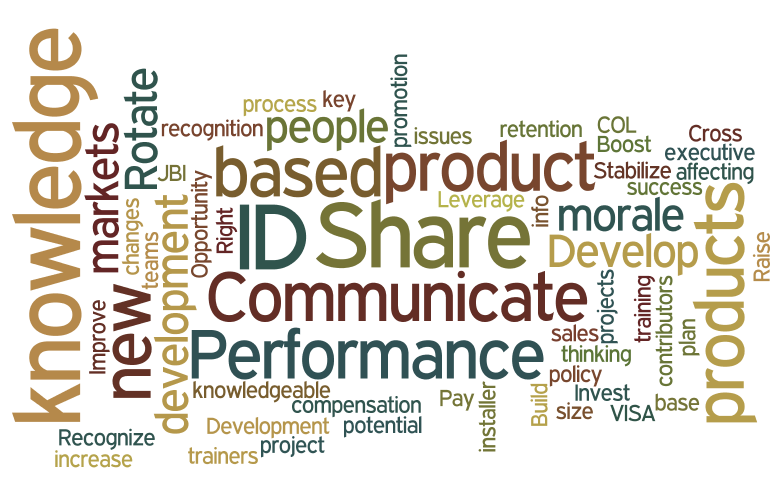Getting Real Engagement
What do people really want from work? I mean really want. Say you manage a key team and your company has been acquired and gone through cost-cutting over the past two years. Colleagues have lost their jobs. Then your company acquired and integrated another one. Business is tough.
Productivity pressure has increased and a senior leader tells you that some customer-facing teams are going to participate in an effectiveness survey. In a pre-survey briefing, you learn one of the questions asks people to complete the sentence “What we need to do more of is…”
You know your team is made up of highly skilled engineers. No one has had a raise in two years. Competitors regularly poach them. What percentage of team members will say something like “Pay us more?” (a) 5% (b) 25% (c) 45% (d) 75% (e) 95% ?
Certainly people want and need to be compensated fairly. Money is important. It’s one of the ways we keep score and demonstrate value.But how important is it, really?
The Mayo Clinic delivers what is arguably the finest medical care in the world. It attracts brilliant physicians but not because the pay is great.Once they’ve been on staff for five years - no matter what - their pay is the same as every other physician in their department.[i]They could leave and be paid more money elsewhere. So why don’t they? Because they know they won’t be able to practice better medicine. The Mayo is patient-centric.Everyone is part of a team. The team has one purpose: deliver outstanding patient care.And they are all aligned around that purpose. They are internally motivated.
More important than money is the question of whether people feel they have the opportunity to do what they do best. That’s what they want. Do they feel the powerful drive that comes with the sense that they have the opportunity to “win” at work? Do they feel they can be effective? Do they sense their opinions count? Do they have the opportunity to grow and develop? ii
Do the same rules apply as individual contributors become managers?How about as managers take on P&L and strategic responsibilities?
The answer is “Yes and….” The “and” in this case is that employees and managers perform better when they engage with one another effectively.When a manager feels connected to his team and feels he can have a positive impact, he is more likely to have that positive impact. That’s good for everyone.

Let’s go back to the survey. This tag cloud tells you something important about getting real engagement.It was generated by the engineers’ key word answers to the “…more of…” question. Word use frequency determined word size.
This team is most definitely focused on wanting to do more of the things that will enable them and their team and the enterprise to be successful.They want to share knowledge, focus on performance and improve communication.They are thinking strategically.If your answer to the question “What percentage of team member will say something like ‘Pay us more?” was (a) 5%, you probably know that if you want to build real engagement you have to create an environment where people can win at work.People want challenge, an opportunity to develop, appreciation of effort and the chance to succeed. That’s what it takes.
Not convinced? You will be after you see behavioral economist Dan Ariely PhD at TedX.
